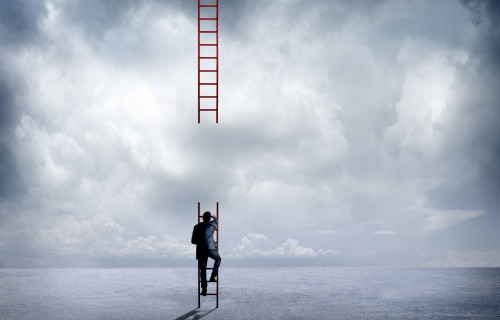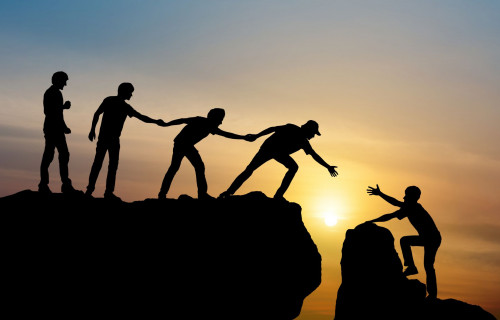
The Digital SDG: Ensure the Digital Age Supports People, Planet, Prosperity & Peace
While many uncertainties remain, one thing is clear, the lives of people and the transactions of our economy and government will move more and more online. In 2015, 193 nations committed to the SDGs, which set out a transformative agenda that linked human health and prosperity to environmental health and equity. This holistic agenda is critical. But the current crisis highlights that it is incomplete. The SDGs failed to address the governance of one of the most potent forces defining humanity's future: the digital age.
The Digital Age
The digital age is disrupting social systems and driving transformations at a scale and pace unparalleled in history. Decades ago, philosopher and media theorist Marshall McLuhan inspired the aphorism: “We shape our tools, and following our tools shape us.”
The Digital Divide
Nowadays, digital technologies are shaping everything. And they shape what we read, consume, our votes, and how we interact with each other and the world around us. Many risks and uncertainties emerge, including threats to individual rights, social equity, and democracy. All amplified by ‘the digital divide’ – the differential rate of internet penetration and access to digital technologies around the world.
The digital SDG
Along with the high risks of harm comes massive opportunities to leverage the digital age capabilities to steer society towards our common goals, as expressed through the SDGs, including net-zero carbon emissions and a more equitable global society. In the digital age, power can be decentralized from the top to the stakeholders. Social norms of consumption can be shifted towards low carbon products, and society’s mindset changed from fossil fuels to renewables. We need a new digital SDG — SDG18 — focused on the digital age, which outlines clear targets for leveraging this transformative force to benefit both people and the planet.
Sustainability in the Digital Age
The United Nations recently released a roadmap for enhancing global digital coordination in support of humanity. This sets out a much-needed framework to begin to address the digital governance gap. Which lays a base to effectively leverage the digital sector to tackle the climate crisis and broader sustainability goals.
The Montreal Statement
However, a collective statement has just been issued by leaders from business, government, civil society, and researchers: The Montreal Statement on Sustainability in the Digital Age. This Statement calls on society to recognize that tackling the climate crisis, building a sustainable world, and working toward a just and equitable digital future are inherently interconnected agendas. And above all, it lays the foundation for what could define an action agenda for the missing SDG 18.
Five near-term actions for a digital SDG
The Statement outlines five near-term actions to overcome the digital age’s profound risks and leverage its transformative capabilities to build a climate-safe, sustainable, and equitable world. These include the need to:
- Build a new social contract for the digital age, which addresses individual rights, justice and equity, inclusive access, and environmental sustainability;
- Ensure open and transparent access to data and knowledge critical to achieving sustainability and equity;
- Foster public and private collaborations to develop and manage AI and other technologies in support of sustainability and equity;
- Promote research and innovation to steer digital transformations toward sustainability and equity; and
- Support targeted communication, engagement, and education to advance the social contract.
The Statement was first formulated during an international workshop in Montreal in September 2019 as part of the CIFAR AI & Society series. It was subsequently shared, reviewed, and revised by others worldwide, working in the digital and sustainability sectors.
Unfulfilled aspirations
Motivating all this work is a realization. A realization that the initial aspirations of the digital revolution – democratization of information, the strengthening of governance through broader citizen engagement, a more equitable and greener sharing economy – were never fulfilled. Because we, as a society, failed to anticipate how the digital revolution would unfold. We did not foresee the scale of changes that would result from the new business models, governance systems, and communications systems. Nor the new types of societal challenges posed by such large-scale change. As a result, we now live in a digital age that threatens individual rights, has facilitated the propagation of disinformation, undermines trust, and can ultimately threaten democracy.
Let the digital force work for good
In conclusion, we are in a moment of unprecedented disruption. Which opens up opportunities for transformative change. Among the most potent forces defining our future are those of the digital age. We must put this force to work for people, planet, prosperity, peace, and partnerships.
More news

What is causing the ever growing sustainability data gap?
One of our work’s benefits is that we speak to a lot of sustainability and non-financial reporting professionals. It’s always a pleasure to exchange thoughts and be inspired by professionals that are passionate about such an important cause. All these conversations also give us a clear insight into common challenges. One of these challenges is more and more data collection and the sustainability data gap.

New: Beezzz user-community!
At Beezzz, we believe that continuous improvement is the key to long-term success. That’s why we’ve launched our new user-community. The community serves as a platform for daily growth. You can help us by telling us how we can improve the app. You can comment and vote on suggestions of other users. Based on all this feedback, we plan our continuous improvement in our roadmap.
